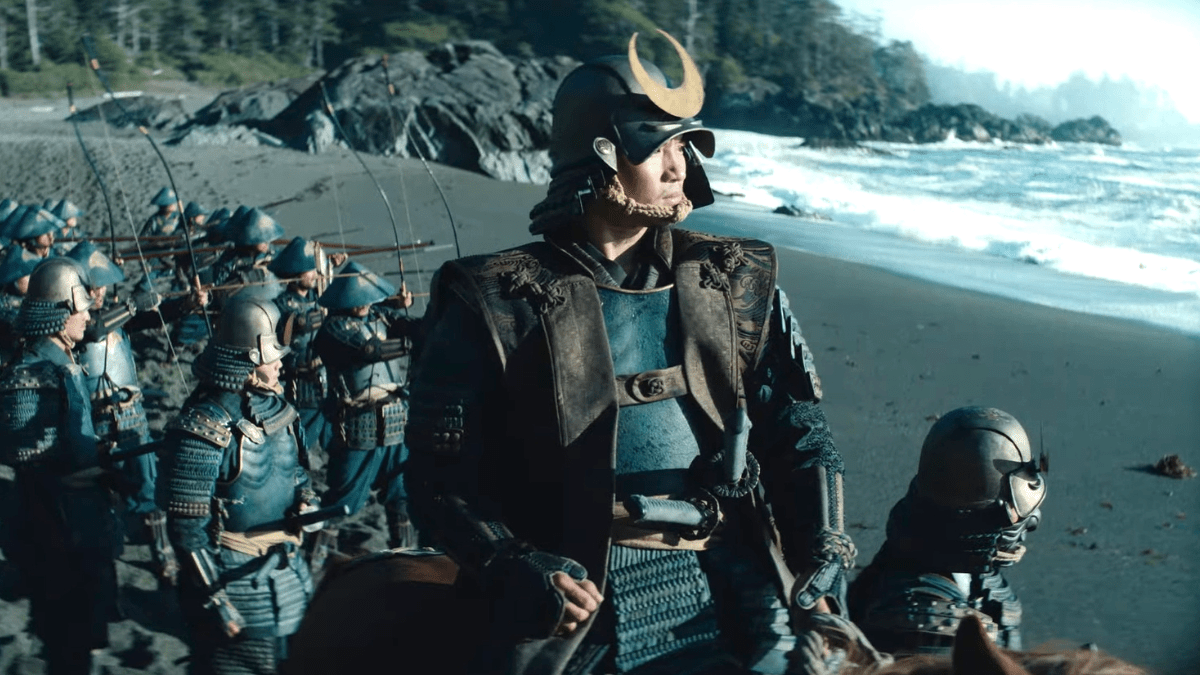Shōgun is a title that haunts the steps of every character in FX’s new historical drama. The absolute power in the land, characters plot and kill for this esteemed position.
Like the kings and queens of Westeros yearn to lay claim over the Iron Throne in Game of Thrones, so too do the characters of Shōgun yearn for power. Only, these circumstances actually happened in history. Contrary to what many may believe, the Emperor was not the main seat of power in feudal Japan. Though he was thought to be appointed by god, it was the shōgun who commanded fear and respect.
At the time, the country had become a military dictatorship, also called the Shōgunate. The Emperor’s power was only symbolic. It was the strength of the shōgun that ruled the land. This was all because of the feudal system that ruined Japan, and is a central plot point in the series. So what exactly is it?
What is Feudalism?
According to the World History Encyclopedia, feudalism ran in Japan from 1185-1603. At its core, this social structure was defined by lords trading land for loyalty and other services. Because the Emperor did not hold true power, Japan was a military dictatorship. The shōgun would bestow land to their supporters, who would then become stewards of that location.
Feudal lords who controlled these territories were known as daimyo. They assigned different fiefs to the warrior class to defend because of the threat of war. This warrior class was the samurai, who answered to the daimyo, and protected lands from civil war. Though maintaining a significant amount of power in the social hierarchy, samurai maintained a code of honor, known as bushidō. This concept was also called “The Way of the Warrior,” and dictated the samurai to live by a code of ethics.
Daimyo would pay their samurai to watch over the lands and protect them from any incurring violence. Because samurai did not legally own the land they were protecting, the feudal lords would pay them out of a cut of the peasants’ taxes. This salary was typically paid in rice, as the daimyo could not afford to lay out currency. And then were the peasants, who worked at the bottom of the food chain and paid taxes to their reigning feudal lords. With essentially no rights, peasants worked the land in exchange for protection.
While only those in power seemed to benefit from this system, there was a deeper philosophy behind it. Based on the philosophical teachings of Confucious or Kong Qui, morality and respect were an integral aspect of feudal Japan, and influenced how the citizens interacted. Daimyo and the warrior class were obligated to protect their villagers out of a sense of duty. In return, the peasants paid taxes to their lords, a representation of a symbiotic relationship. This social hierarchy directly impacts the events of Shōgun.
Feudalism in Shōgun
Feudalism is the main source of discord in Shōgun episode 1. The Council of Regents determine that Lord Toranaga (Hiroyuki Sanada) is a threat because he is expanding his territory and increasing his land. This causes the rest of the Lords to turn against him and move for his impeachment from the Council. Their biggest fear would be that Toranaga would amass so much land – and therefore support – that he could become shōgun.
One of Toranaga’s lords who operates in his region is Yabushige (Tadanobu Asano). He runs several villages in Toranaga’s name, and gives stewardship to his nephew. Feudal Japan operated as a hereditary system that was passed down through families. When Omi (Hiroto Kanai) does well in the eyes of his uncle, Yabushige awards him additional income as a reward. It was a common practice in feudalism, and endeared its participants to the system.
Of course, feudalism can be a double-edged sword, as well. In a system that is dependent on military power, allegiances can change. Yabushige makes it clear that he is only out for himself, and when the tide starts to turn against Toranaga, he considers other options. Determined to be on the winning side, he tries to confiscate the recent shipwreck’s contents, including advanced weaponry. In Shōgun, this power struggle depends on the feudalist system that was practiced for hundreds of years.
